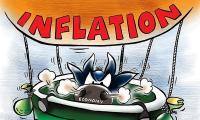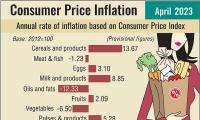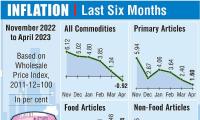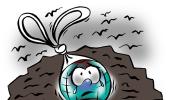European Inflation Eases to 2.6% as Energy Prices Fall
European inflation eased to 2.6% in February, driven by falling energy prices and moderating food inflation. The figure is down from 2.8% in January and significantly lower than the peak of 10.6% in October 2022.
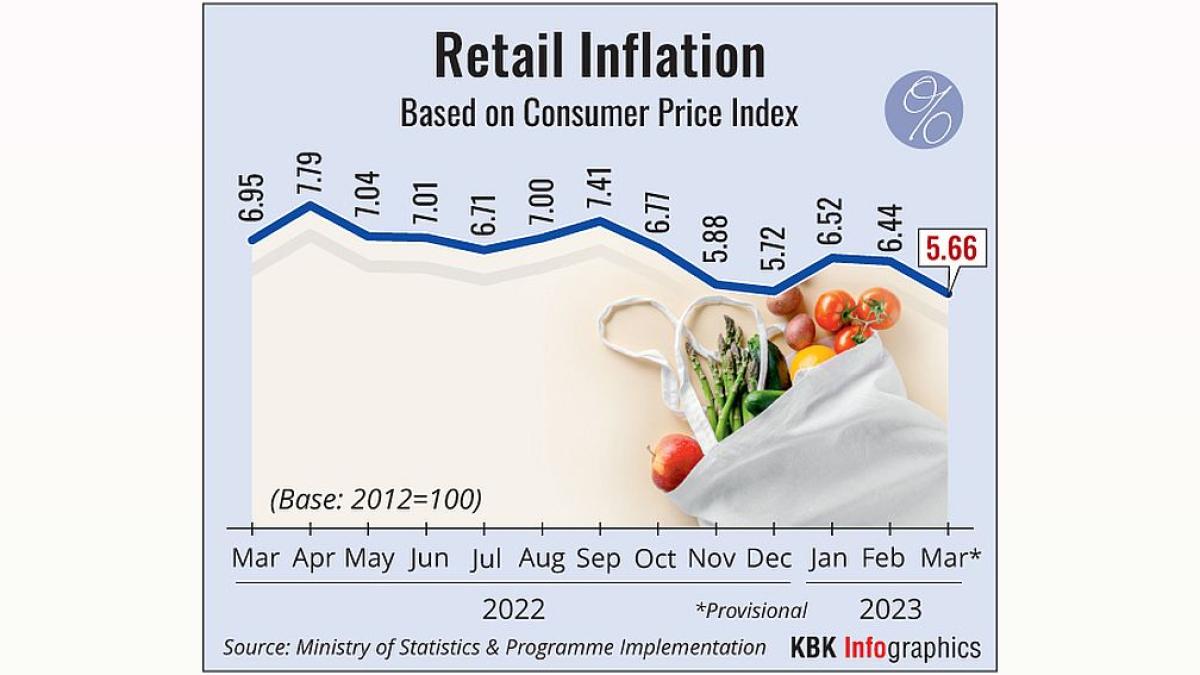
Photograph: Danish Siddiqui/Reuters
Frankfurt, Mar 1 (AP) The inflation that has ravaged the European economy eased again in February, falling to 2.6 per cent as high interest rates, moderating oil and gas prices, and sluggish growth held back price increases in stores.
February's figure for the 20 countries that use the euro currency compares to 2.8 per cent from January, the European Union's statistical agency Eurostat said Friday.
Inflation is now far below its peak of 10.6 per cent in October 2022, which it hit after Russia cut off most supplies of natural gas and sent energy prices through the roof.
But the return of inflation to 2 per cent, the goal set by the European Central Bank, is taking time. Food inflation eased to 4 per cent from 5.6 per cent, offering some relief to people on modest incomes who spend more of their pay on necessities than the well-off. Another factor was energy prices, which fell by 3.7 per cent.
One key sign that inflation is losing steam was so-called core inflation, which excludes swings in food and fuel prices. The figure, closely watched by the European Central Bank as a measure of underlying inflation pressure in the economy, came in at 3.1 per cent, down from 3.3 per cent.
Prices spiked after Russia cut off most supplies of natural gas to Europe, sending energy prices through the roof, and as the post-pandemic rebound led to logjams in supplies of parts and raw materials. Those troubles have eased, but lost purchasing power slowed the economy and many workers have yet to catch up through new wage agreements.
February's figure for the 20 countries that use the euro currency compares to 2.8 per cent from January, the European Union's statistical agency Eurostat said Friday.
Inflation is now far below its peak of 10.6 per cent in October 2022, which it hit after Russia cut off most supplies of natural gas and sent energy prices through the roof.
But the return of inflation to 2 per cent, the goal set by the European Central Bank, is taking time. Food inflation eased to 4 per cent from 5.6 per cent, offering some relief to people on modest incomes who spend more of their pay on necessities than the well-off. Another factor was energy prices, which fell by 3.7 per cent.
One key sign that inflation is losing steam was so-called core inflation, which excludes swings in food and fuel prices. The figure, closely watched by the European Central Bank as a measure of underlying inflation pressure in the economy, came in at 3.1 per cent, down from 3.3 per cent.
Prices spiked after Russia cut off most supplies of natural gas to Europe, sending energy prices through the roof, and as the post-pandemic rebound led to logjams in supplies of parts and raw materials. Those troubles have eased, but lost purchasing power slowed the economy and many workers have yet to catch up through new wage agreements.
You May Like To Read
TODAY'S MOST TRADED COMPANIES
- Company Name
- Price
- Volume
- Vodafone-Idea-L
- 11.65 (+ 3.56)
- 106772451
- Alstone-Textiles
- 0.28 ( -3.45)
- 44187760
- Mangalam-Industrial
- 0.88 ( -2.22)
- 39177573
- Sunshine-Capital
- 0.27 (+ 3.85)
- 35956340
- GMR-Airports
- 104.40 (+ 6.37)
- 30453005
